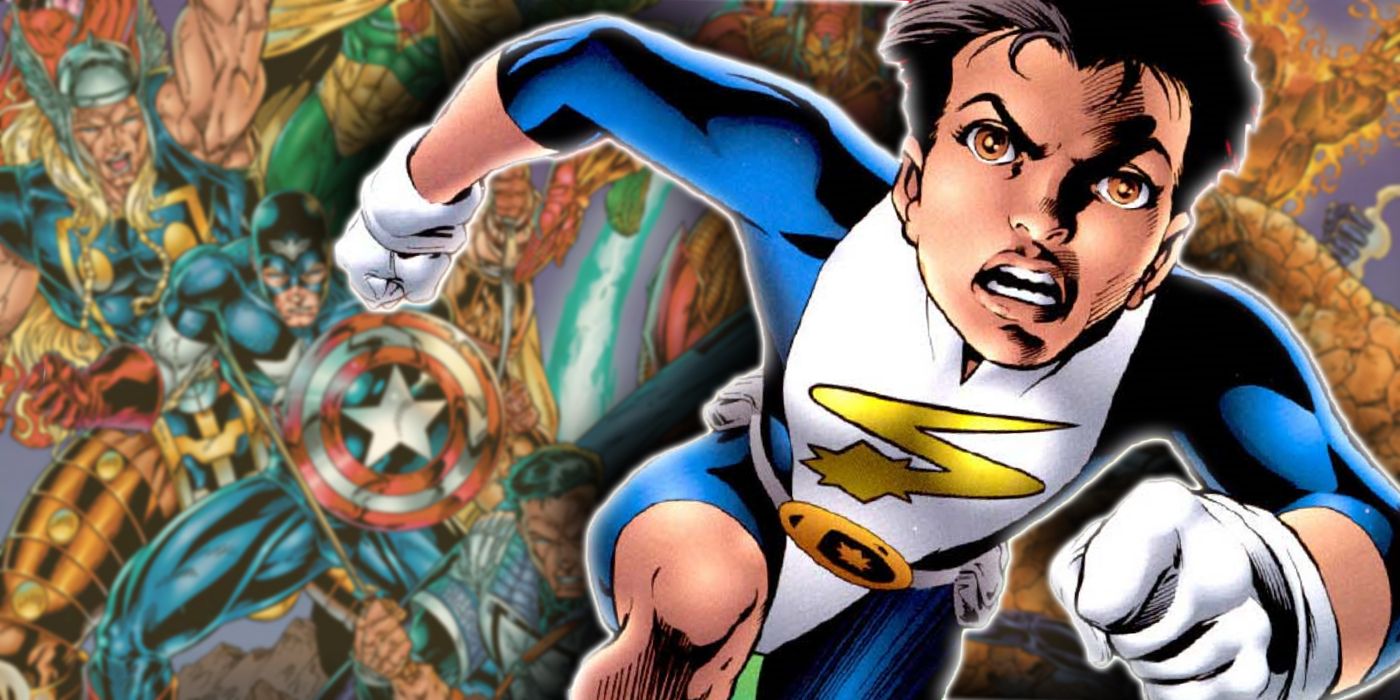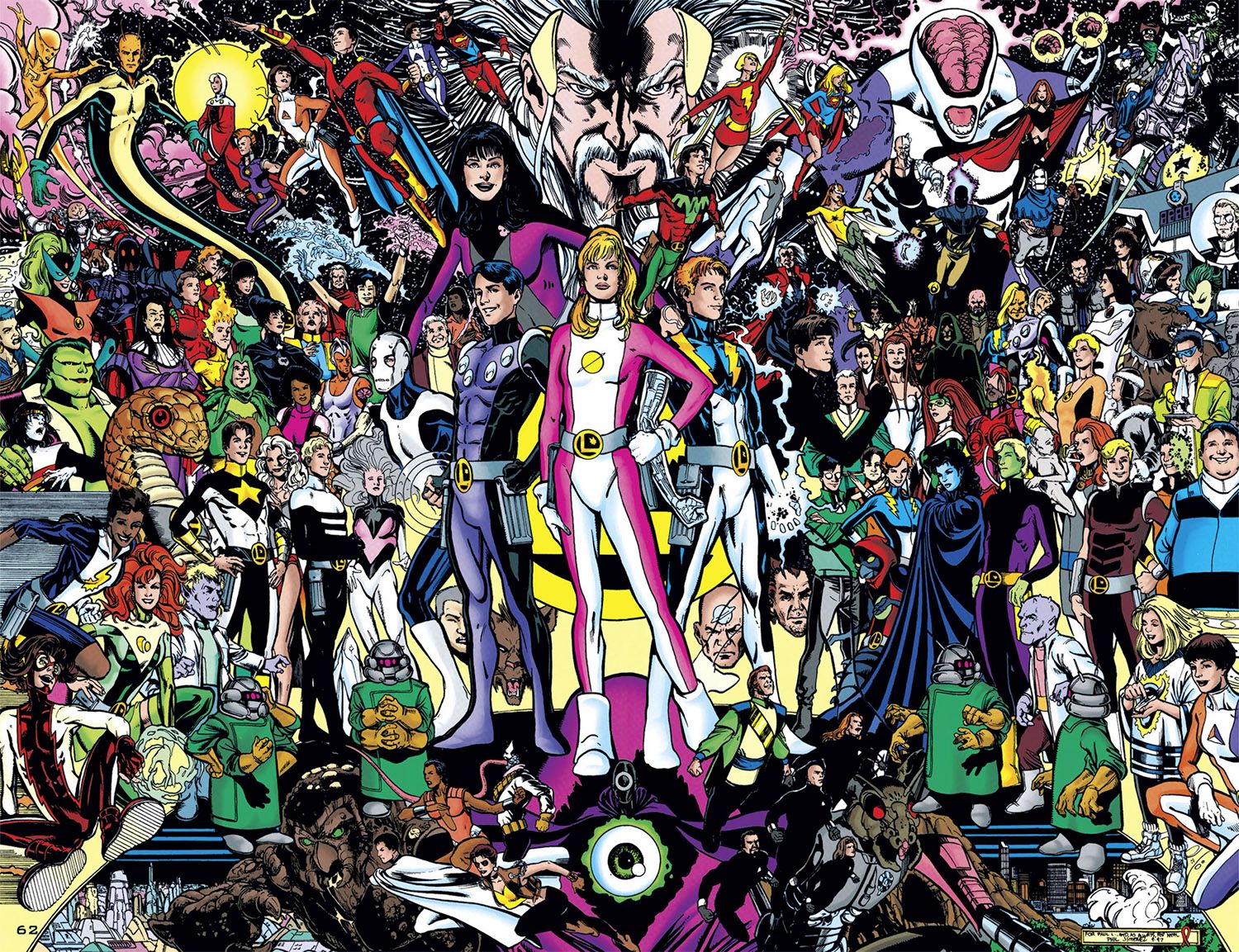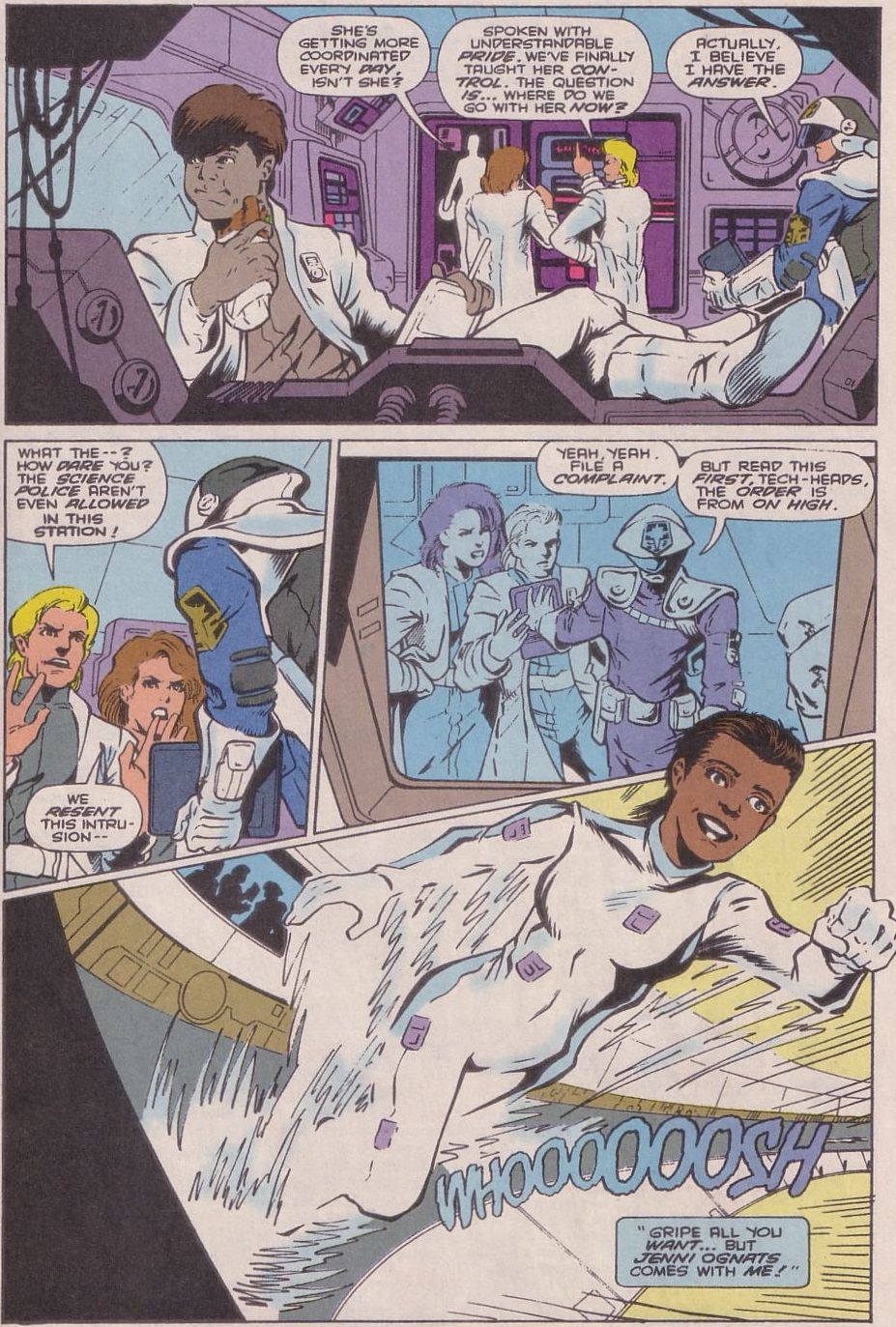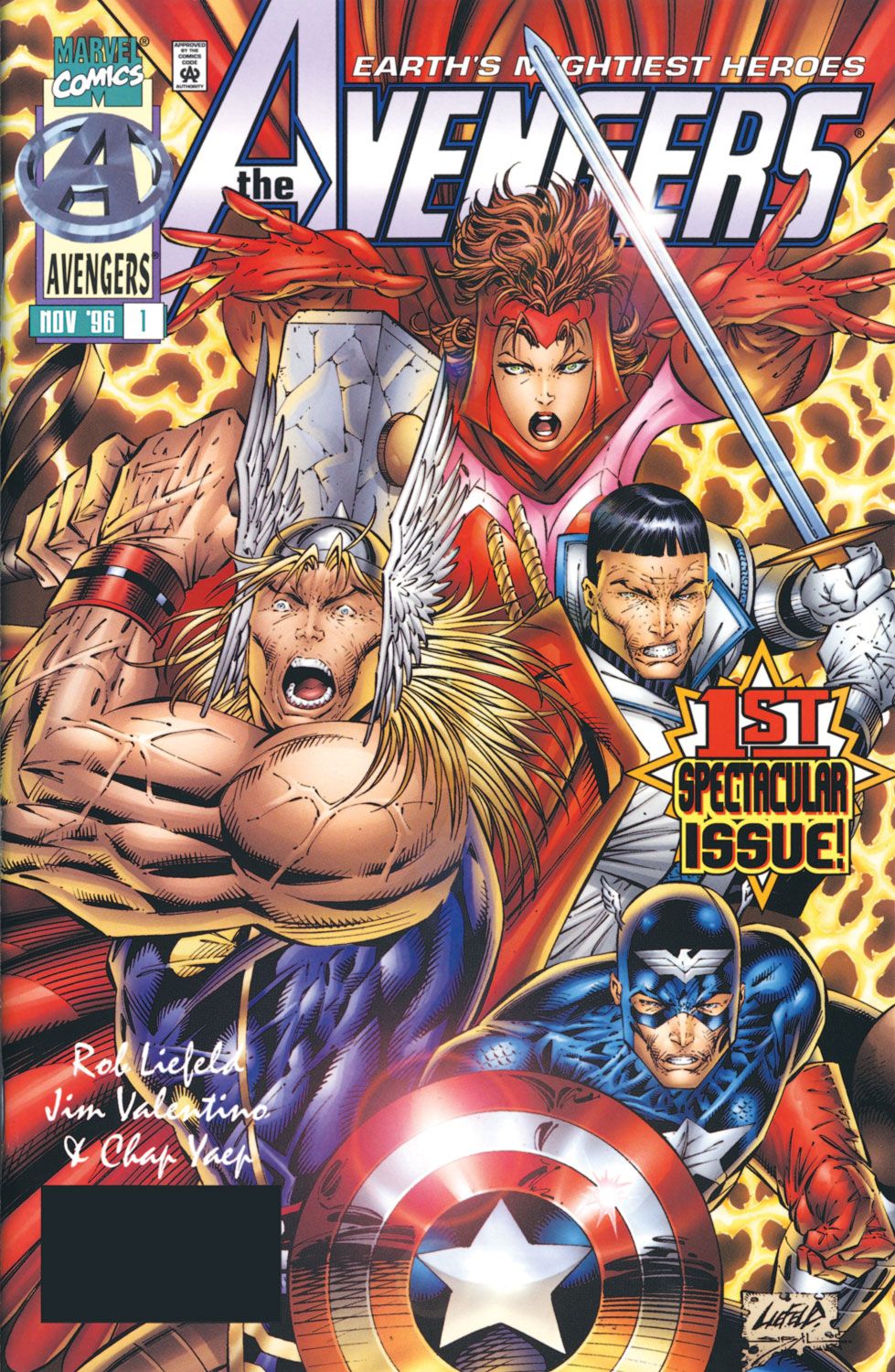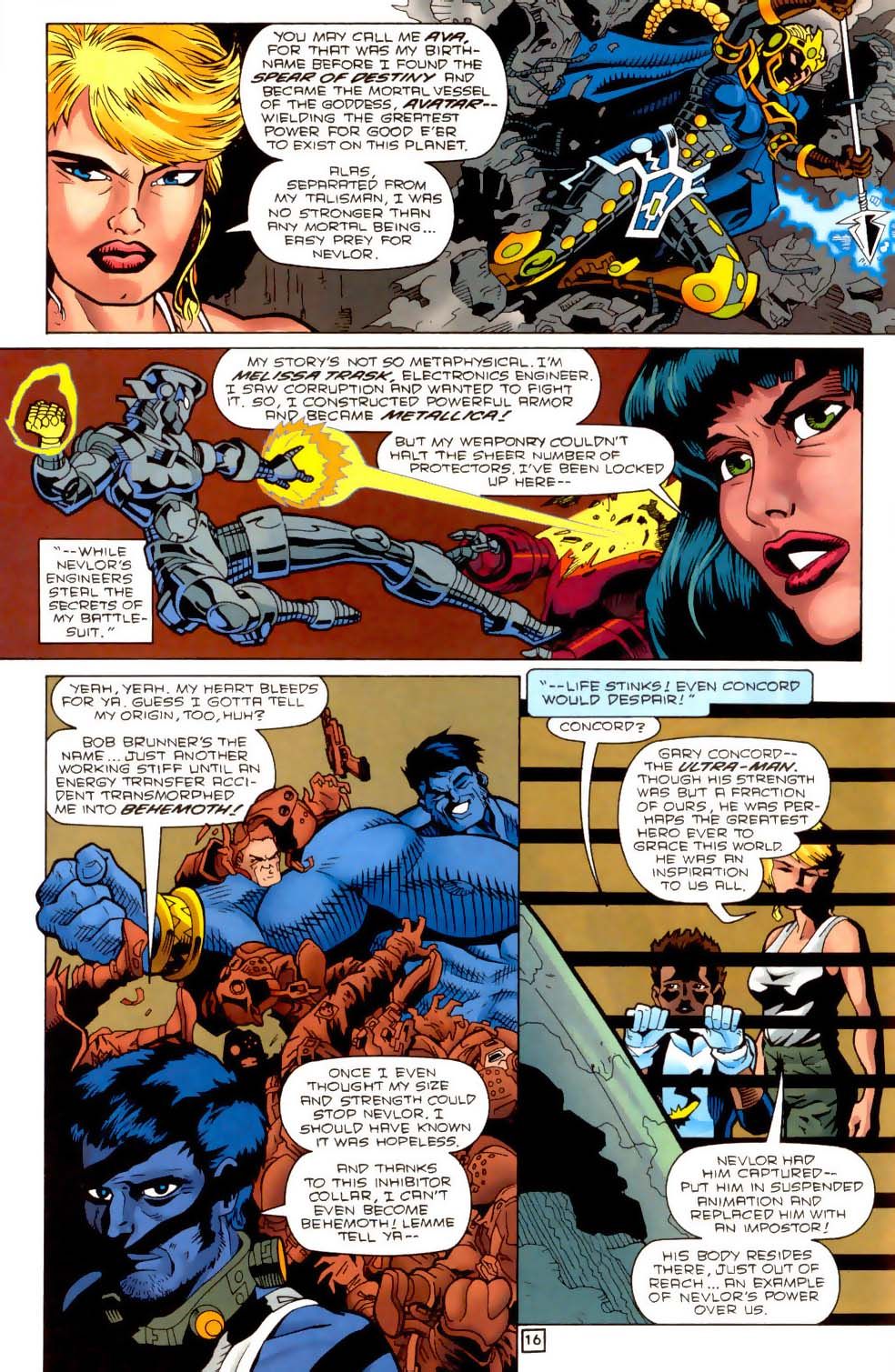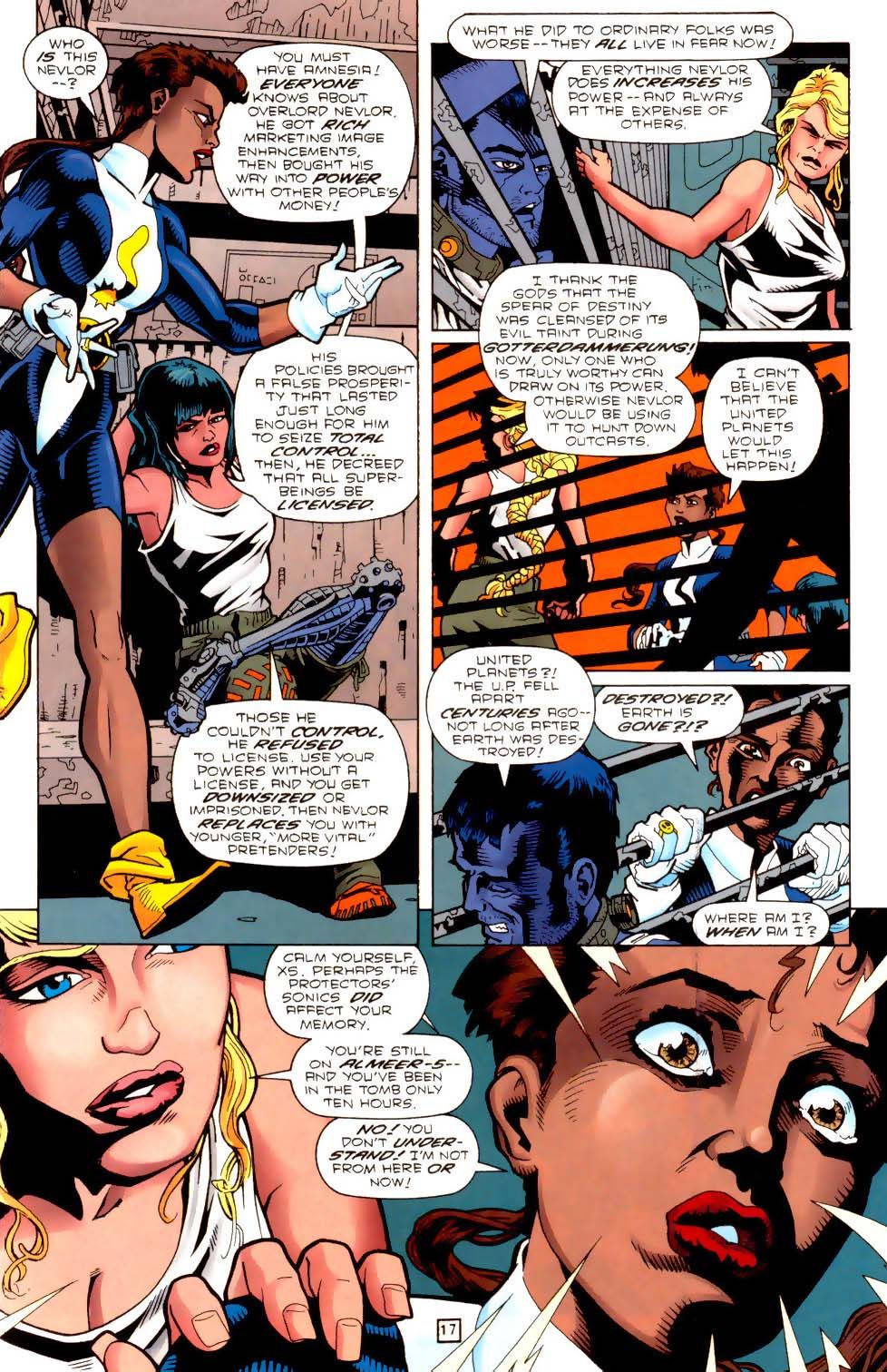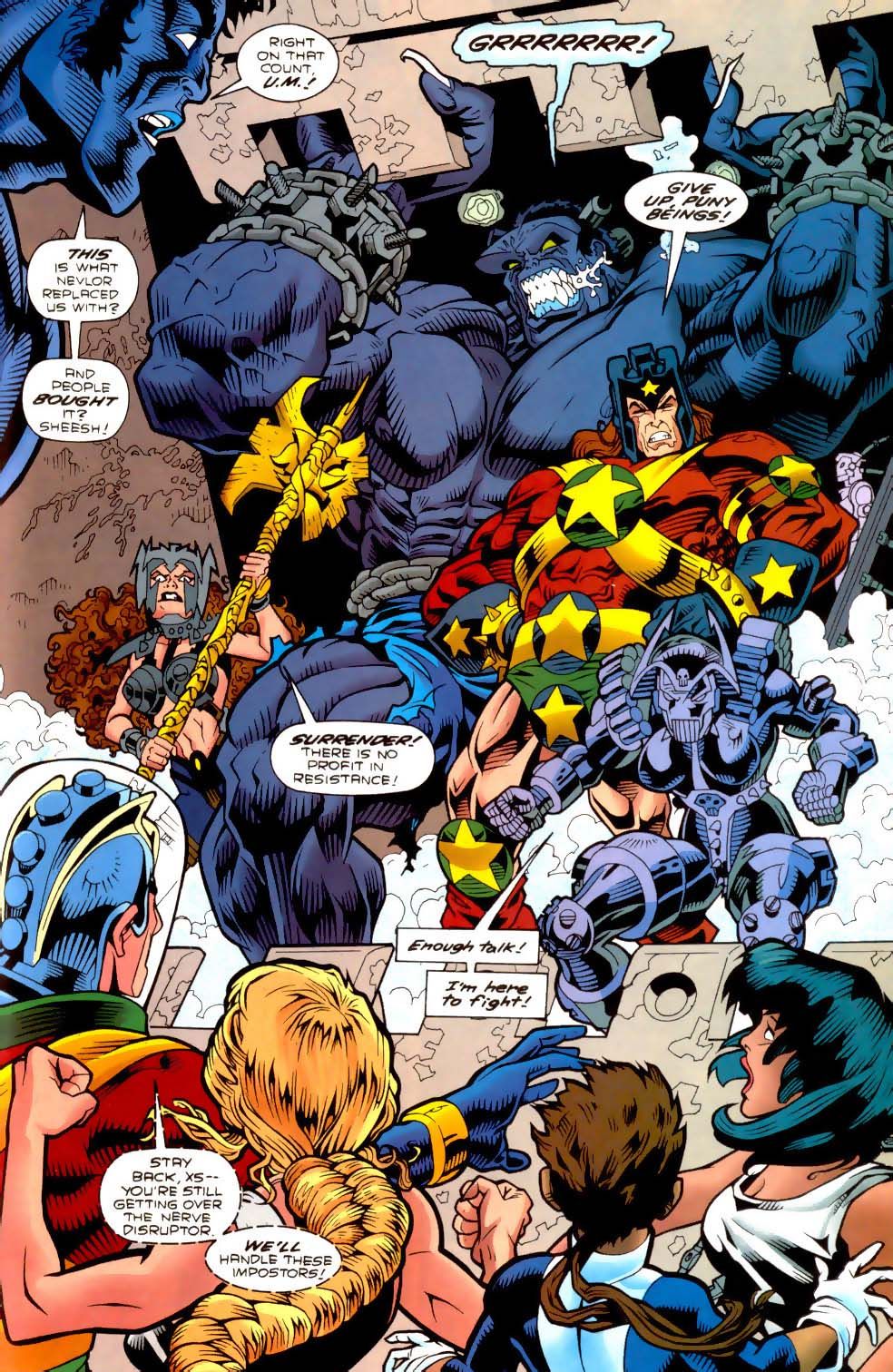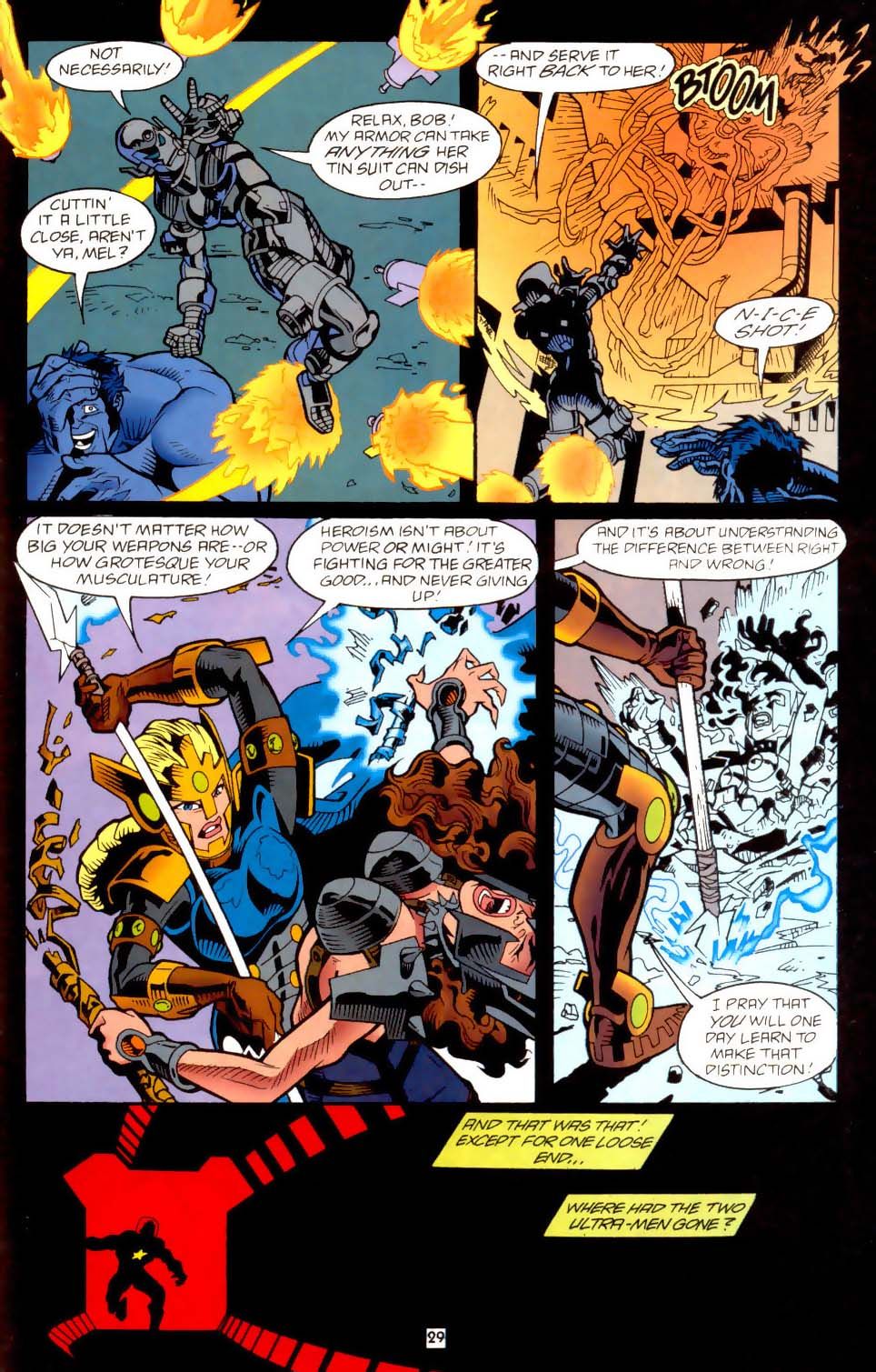Today, see how a 1996 Legion of Super-Heroes comic book annual mocked Marvel's then-new Heroes Reborn reboot of the Avengers (and other Marvel superheroes).
In Meta-Messages, I explore the context behind (using reader danjack's term) "meta-messages." A meta-message is where a comic book creator comments on/references the work of another comic book/comic book creator (or sometimes even themselves) in their comic. Each time around, I'll give you the context behind one such "meta-message."
THE LEGION WILL NEVER DIE...BUT IT WILL BE REBOOTED
The Legion of Super-Heroes were introduced in 1958 in the Superboy feature in Adventure Comics (#247, to be precise). They were a group of teenaged superheroes from the future who traveled back into the past (Superboy's present) to recruit the young hero to join their team. While Superboy was a key part of the Legion, the team soon grew popular enough to last on its own without Superboy's involvement (or at least without Superboy's involvement being the key sales part of the series). For instance, while the book initially shared Superboy's series, it eventually took over the series and Superboy got his own solo series.
One particular run by Paul Levitz, Keith Giffen and Larry Mahlstedt was SO popular that the Legion was briefly one of DC's top-selling comic books in the early 1980s, leading to Giffen and Levitz launching a brand-new Legion of Super-Heroes series in 1984. Eventually, though, Levitz, who was by this time a high-ranking DC editorial executive, took a break from writing the series. Giffen had left for a while, as well, and had only recently returned to work on the book with Levitz. With Levitz gone, Giffen took over the direction of the book entirely.
In 1989, working with scripters Tom and Mary Bierbaum (longtime members of the Legion of Super-Heroes' bustling fandom) and inker Al Gordon, Giffen relaunched the book and had it be set "five years later" than the final issue of the previous run, allowing Giffen to essentially reboot the series, as there had been a major war in the ensuing five years, and the Legion were now all adults and things were much bleaker for them. The whole approach to the book was different now, with Giffen using a lot of nine-panel grids in his storytelling (very similar to then-recent Watchmen series by Alan Moore and Dave Gibbons) and the whole feel being very dark (with a hint of hope coming from the reunited Legion).
One of the problems, though, with doing a sort of "post-apocalyptic" take on famous characters is that people are going to want to go back to the original versions of the characters eventually, but here, it was essentially "impossible," despite an attempt to introduce young doubles of the team that received their own spin-off series called Legionnaires after Giffen's run ended, so there would be one group of adult Legion members and a group of teen members. I guess people didn't think that that idea was a good enough one to stick with, so after the crossover event, Zero Hour, the Legion's timeline was "erased" and rebooted, with a brand-new approach to the Legion that was fairly firmly planted in the original version of the Legion, just slightly updated.
One of the new characters introduced in this reboot was XS, whose real name was Jenni Ognats, the granddaughter of Barry Allen (who briefly lived in the future with his wife, Iris Allen, before Barry returned to the present to sacrifice his life during Crisis on Infinity Earths). She debuted in Legionnaires #0 (by Mark Waid, Tom McGraw, Jeffrey Moy and Ron Boyd).
MARVEL HEROES GET REBORN, AS WELL
Meanwhile, over in the Marvel Universe, sagging sales led Marvel to decide to do a special arrangement with two former Marvel artists who had later become two of the seven original founders of Image Comics - Jim Lee and Rob Liefeld. During a crossover called Onslaught, the Avengers and the Fantastic Four seemingly sacrificed their lives to defeat the villainous Onslaught.
In reality, the heroes were then transported to another world/reality where Lee and Liefeld could reboot them in a new continuity, free from established Marvel history. Lee rebooted the Fantastic Four and Iron Man while Liefeld rebooted the Avengers and Captain America.
The heroes were now drawn in Liefeld's distinctive art style...
Sales went up on the books, but obviously there were some fans (and creators) who did not like these changes. By 1998, Marvel had reversed course and ended the deals with Lee and Liefeld and brought the heroes back to the regular Marvel Universe in an event called Heroes Return.
But at the time, a Legionnaires Annual poked some fun at the concept, as well.
THE LEGION MOCKS MARVEL
In 1996, DC's Annuals were all based on an over-arching theme of "Legends of the Dead Earth," where creators would tell stories set in a distant future (long after the destruction of Earth) with characters influenced by the heroes of the 20th Century. In the case of Legionnaires Annual #3 (by Roger Stern and a host of artists - the ones we're specifically interested in today are Chuck Wojtkiewicz, Don Hillsman and Dexter Vines), Stern played around with the concept by having XS (who had been trapped in the then-current "present" of the DC Universe with some of her teammates) travel through time trying to get back to her timeline.
She got to meet her grandfather, Barry Allen, for the first time, when she traveled to the future (but well before she was born), but on her next trip, she overshot her mark and ended up in the 100th Century on a planet called Almeer-5, which is basically an anagram for Marvel (just with two Es and no V). She meets stand-ins for Thor, Iron Man, Captain America and the Hulk...
The "Thor" explains to XS how Nevlor (a reference to Revlon owner Perelman, who purchased Marvel in the late 1980s and then drove the company into bankruptcy) ruined their world and then replaced them with younger versions of themselves (a reference to the then-new Heroes Reborn story).
After XS breaks them free, they run into the replacement heroes, parodies of Liefeld's art muscular art style...
In the end, the older heroes prevail (and do some more commentary criticizing the Heroes Reborn approach)...
They then help XS return to her proper timeline.
Thanks to reader David B. for suggesting this one!

